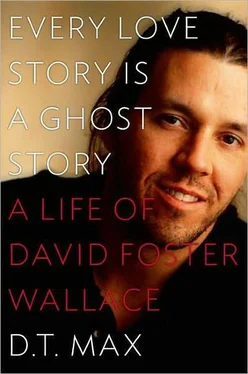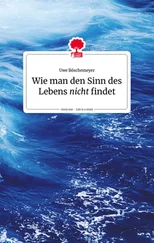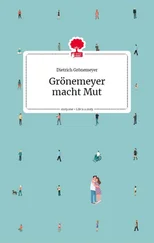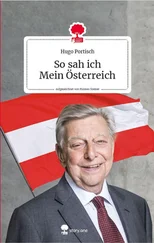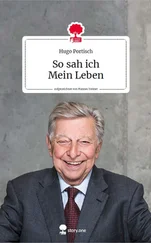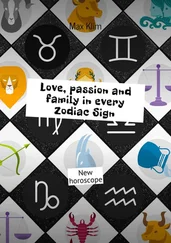an almost Artaud-ish blackout-type ending…. One that might look truncated or even violently ablated…. That is to say (I am not at my clearest on this, I know), a conceived ending that’s not so much anticlimactic as aclimactic? I can (but hopefully will not) give you about 4300 thematic/theoretical reasons why an aclimactic close here will be best — e.g. resonating echoes w/themes of stasis, annulation, paralysis, undecidability, clarification of questions > solutions to questions etc.
Wallace had dealt with enough New York editors by now to worry how such high-concept talk would strike even the supportive Pietsch. He asked for help, reminding his editor that “your loyalties to readability and readerly pleasure are one of the reasons why your editorial input here and elsewhere is of value.” There was an element of flattery here — Wallace played tennis in his letters too — but also truth. He so much wanted to help the reader to a more engaged life that he feared losing him or her on the way. He went back to writing and rewriting, cutting and then adding back in more than he had cut, taking breaks only to teach his classes. He could not have worked harder, as he let Pietsch know, but even so, he saw he would not finish the manuscript by April 15 and asked for more time at the beginning of that month. His letter requesting an extension was penitent, whether from exhaustion, memories of his tangle with Viking Penguin, or the usefulness of imagining Pietsch as an unforgiving authority figure so he would get the book written:
I’m mortified to have essentially lied to you about 4/15; the date seemed an almost GOP-ishly staid and conservative projection back in January. I now want to say late April or May. I’m not saying this: I’m saying I want to say it. I canceled class for these two weeks, but now I know I won’t be done by 4/18, and then I have to make up all the classes I’d canceled.
He imagined apocalyptic consequences to being late connected to the meaning of April 15:
If I don’t file my taxes I might go to jail — though this is also a sort of late-night terror I have, about Little Brown’s parent company’s lawyers sending me to jail because of some Kafkaesque boilerplate clause I neglected to see at the bottom of the legal document I know I signed, and was given $ by you guys. I know this is just a dark fantasy.
But ever recursive in his thinking, he added:
I also know there[’s] something doubly annoying about a letter like this: it’s so anxious and cringing that it kind of forestalls a stern response on your part, since the letter might now make a stern response seem like kicking somebody who’s already kicking furiously at himself and telling you to go ahead and kick because he’s such a dork he deserves it.
Wallace’s apology-cum-meta-apology prompted words of comfort from Pietsch, who reassured his author that everyone at Little, Brown was happy to wait for the novel and eager to read it. Wallace, relieved, wrote back with thanks for Pietsch’s “extremely analgesic letter,” while quietly claiming a little more time to work on his book:
I am writing this thing; or rather except for the last ten pages have written the whole thing, and am w/ all due haste putting it together in a seamlessly tight bag….[P]lan your own schedule for this thing hitting your mahogany by late june at the very latest. I will finish the final draft by then or be dead.
As ever, his letter contained news. (The negotiations on due dates were just to soften Pietsch up.) He had a new scheme (“I’m telling you this in advance to like prepare you emotionally”), a way to shorten the book without having to cut it beyond where it could be cut: endnotes. At the back of the book in smaller type they could stick “harder stuff — data, medical lore, 19th-century asides, ESCHATON math calculations (which I’m attached to because darn if I did find a neater and more elegant way to prove the Mean Value Theorem for integrals than anything that’s in the texts) and certain scenes.”
He went on:
I’ve become intensely attached to this strategy and will fight w/all 20 claws to preserve it. it allows me to make the primary-text an easier read while at once 1) allowing a discursive, authorial intrusive style w/o Finneganizing the story, 2) mimic the information-flood and data-triage I expect’d be an even bigger part of US life 15 years hence, 3) have a lot more technical/medical verisimilitude 4) allow/make the reader go literally physically “back and forth” in a way that perhaps cutely mimics some of the story’s thematic concerns…5) feel emotionally like I’m satisfying your request for compression of text without sacrificing enormous amounts of stuff.
Aware that he was wandering back into the experimental terrain he had worked so hard to exit, he added, “I pray this is nothing like hypertext, but it seems to be interesting and the best way to get the exfoliating curve-line plot I wanted.”
Finally, in late-June 1994, Wallace had the full manuscript, some roughly 750,000 words, complete with Artaud-ish ending and hundreds of endnotes. He promised to bring the bundle to New York on June 30 “handcuffed to a wrist.” He was exhausted:
If further stuff needs to be cut I’m apt not to fight but to ask for an enormous amount of help, because everything in it’s connected to everything else, at least in my head. The whole thing may be incoherent for all I know. At this point I have no idea. It’s like not knowing what your family looks like: you live right up close to something so long and it blinds you. I just want it done.
In New York, he met up with Costello and they went to see Gus, a polar bear at the Central Park Zoo whose constant neurotic circumambulations of his holding cage were attracting attention from the press, including a mention on Letterman . Wallace felt saddened to see the tourists gawking. He flew to Arizona on a visit, where he saw Ashby, who was surprised at how much bigger and shaggier Wallace had gotten with the years. For Wallace it felt strange to be away from a story that had kept him busy nearly night and day for three years. “I am sad and empty, as I always am when I finish something long,” he wrote Franzen, whom he saw in Chicago on the way back. He went on:
I don’t think it’s very good — some clipping called a published excerpt feverish and not entirely satisfying, which goes a long way to describing the whole experience of writing the thing. I pray Pietsch doesn’t want major changes, mostly because I don’t want to have to be engaged with the thing again, not at all.

That summer Amy Wallace was going to be married in upstate New York. She was thirty now and had found someone to settle down with, which made Wallace feel left behind, the unmarried older brother. Amy’s upcoming wedding brought forward another fear, one he had been evading during his feverish work on the book. He wrote Franzen that he was scared that “stuff in the mss” would hurt his mother. The portrait of Avril Incandenza had considerable ferocity. She was now an arch grammarian “engaging in sexual enmeshments with just about everything with a Y-chromosome.” Wallace had placed her at the center of a comic but painful scene in which, dressed in a cheerleader’s uniform, she pretends to be blowing a whistle while one of the Enfield Academy tennis players assumes a three-point stance in nothing but football helmet and jockstrap. Wallace had even put in a suggestion that Avril had committed incest with Orin, Hal’s brother, thus triggering Orin’s own satyriasis.
Wallace calmed himself with the thought that Infinite Jest was after all fiction and that all the “rococo lit-flourish” surrounding her portrait would make the parallels hard to see. One flourish that packed particular power for him was the dedication, which would ultimately read: “For F. P. Foster: R.I.P.,” a coded condemnation of his mother’s father. (In an earlier draft, Wallace had made the attack more emphatic: “For Fenton Foster RIP, (P) [Rest in Peace (Please!)].”)
Читать дальше
